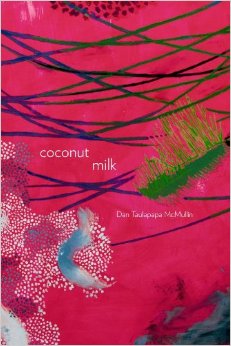Sun Tracks (University of Arizona Press)
In 2011, I joined the Editorial Board of Sun Tracks, a series of indigenous literature published by the University of Arizona Press. My role has been to include works by Native Pacific Islanders. Click this link to read about the development of my involvement with Sun Tracks, and the publication of the first Pacific text in the series, Dan Taulapapa McMullin’s Coconut Milk (2013),
Launched in 1971, Sun Tracks was one of the first publishing programs to focus exclusively on the creative works of Native Americans. In its first three decades, the series has included more than forty volumes of poetry, prose, art and photography by such distinguished artists as Joy Harjo, N. Scott Momaday, Simon J. Ortiz, Carter C. Revard, and Luci Tapahonso.
“Coconut Milk is a fresh, new poetry collection that is a sensual homage to place, people, love, and lust. The first collection by Samoan writer and painter Dan Taulapapa McMullin, the poems evoke both intimate conversations and provocative monologues that allow him to explore the complexities of being a queer Samoan in the United States.
McMullin seamlessly flows between exposing the ironies of Tiki kitsch–inspired cultural appropriation and intimate snapshots of Samoan people and place. In doing so, he disrupts popular notions of a beautiful Polynesia available for the taking, and carves out new avenues of meaning for Pacific Islanders of Oceania. Throughout the collection, McMullin illustrates various manifestations of geopolitical, cultural, linguistic, and sexual colonialism. His work illuminates the ongoing resistance to colonialism and the remarkable resilience of Pacific Islanders and queer-identified peoples.
McMullin’s Fa’a Fafine identity—the ability to walk between and embody both the masculine and feminine—creates a grounded and dynamic voice throughout the collection. It also fosters a creative dialogue between Fa’a Fafine people and trans-Indigenous movements. Through a uniquely Samoan practice of storytelling, McMullin contributes to the growing and vibrant body of queer Indigenous literature.”
